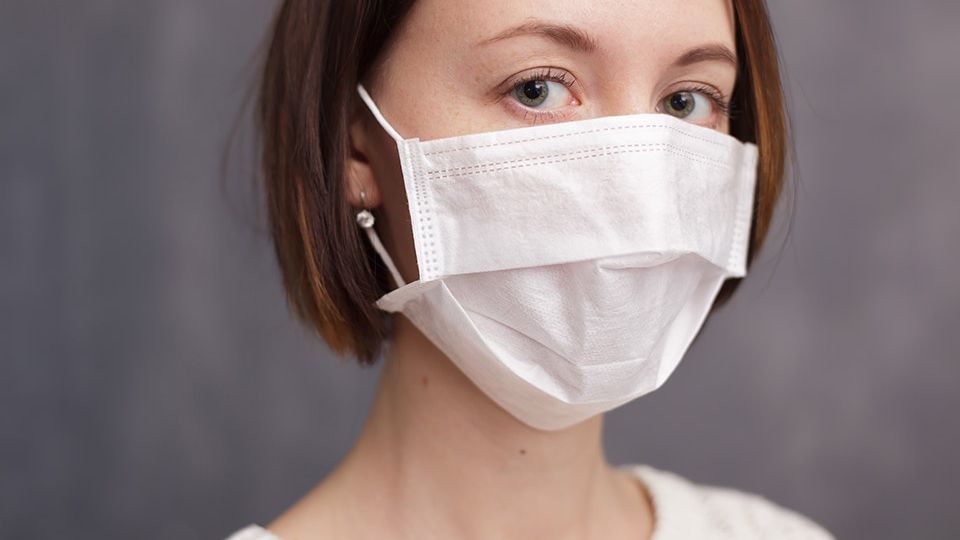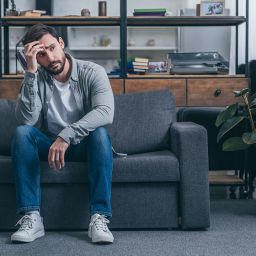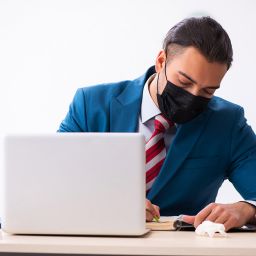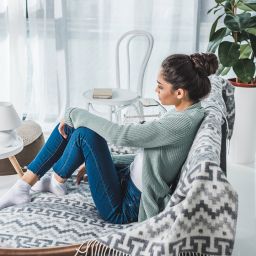
Anxiety Over Coronavirus? Here are 5 Ways to Find Calm During Chaos.
With breaking news about Coronavirus (COVID-19) circulating every hour and stores selling out of food, your world may feel a little out of control.
It’s natural to be more anxious than normal, especially when there’s so much misinformation and wild rumor about the Coronavirus. The good news is that although you may not feel like it, you’re still completely in control of your life and your thoughts. You don’t have to feel anxious.
In this article, I’m sharing time-tested tips for identifying and managing anxiety during chaotic times. These are the same strategies that I use with my clients to help them reach clarity during a crisis, feel calmer, and ward off stress and worry.
First things first: is it worry or anxiety?
Day-to-day life can include moments of anxiety even at the best of times. Unexpected events like terrorist attacks or pandemics, however, are more likely to raise our baseline anxiety levels to the point where we struggle to do everyday activities like leaving the house, sleeping or eating a balanced diet.
When anxiety spirals out of control, this can lead to a condition known as Generalized Anxiety Disorder (GAD). Symptoms of GAD include:
- Feelings of impending danger, panic, or dread
- Tension
- Increased sweating
- Muscle twitching
- Weakness and lethargy
- Problems with sleeping
- Undereating or overeating
- Trouble concentrating on anything other than worries
- Rapid heart rate and breathing

How to calm anxiety during a crisis
If you’ve started experiencing any of these anxiety symptoms since the outbreak of Coronavirus or have noticed an increase in their severity, there are many steps you can take to ease your suffering.
1. Be specific
When approaching any anxiety provoking situation, it’s important to be specific about what we fear. This can bring some sense of balance and a little more control to uncertain situations – after all, anxiety and fear are often about ‘not knowing.’
These simple steps will help you identify, investigate, and address your fears surrounding the coronavirus pandemic.
- Be specific about what your fear is. For example, becoming sick, losing money in the stock market, losing your job, or the death of a loved one.
- Ask yourself, “If this worst case scenario comes true, what will this look like and how will I handle it?”
- Truly examine the odds of this actually happening to you, using a credible source rather than hearsay or cyclical thoughts.
- What can you do in this moment, if anything, to prevent your worst fears from happening?
- Integrate mindfulness tactics focused on being calm and present, like conscious breathing with self-soothing techniques, positive self talk, self-massage, and self-holding.
When we move towards and welcome our fears rather than resisting and running away from them, we can build strength around what we are most frightened of.
2. Stop the information overload
Rather than listening to gossip on social media or sensationalized reports from unreliable sources, take your information about the spread of Coronavirus from reliable sources such as:
- CDC (Centers for Disease Control and Prevention)
- WHO (World Health Organization), which recently added a myth-busters page to its information on COVID-19.
Getting information from reputable sources is a great way to cut through the over-dramatized rumors that often cause panic and anxiety.
3. Set healthy boundaries
If you find yourself obsessively checking for new information or constantly discussing the Coronavirus, start setting boundaries. Limit the amount of time you can spend focusing on Coronavirus.
Do something personally fulfilling with those freed up hours, such as an at-home yoga session, baking cookies with the kids, or playing chess or cards online or via FaceTime with an elderly relative.
By getting away from the frantic news cycle that lends itself to anxiety, fear, and panic, you may feel much more calm and centered. This is particularly important for children and teenagers, who can more easily lose a sense of security and become fearful in response to chaotic surroundings and emotions.
4. Enjoy mindful minutes
Mindfulness helps us manage anxiety by teaching us awareness of our physical and mental states – allowing us to ‘check in’ with ourselves and regain some control of our thoughts, emotions, and physical sensations.
There are many ways to practice mindfulness throughout your day to ease anxious feelings:
- Do a guided meditation or mindfulness practice. Try apps like Headspace or Calm, or put on a free YouTube video.
- Doodle, color, draw, or paint.
- Go for a walk.
- Express your gratitude for others.
- Turn your attention outward. Look up and around you to draw focus from internal (worry) to external (noticing others). Notice the sights and smells around you.
- Become aware of your breathing. Take slow, deliberate breaths. Inhale through your nose and exhale through your mouth. Feel the breath flowing through your body.
5. Practice self-care
Many simple activities, when practiced daily, can have a powerful effect on managing anxiety:
- Eating a healthy, balanced diet
- Avoiding alcohol, caffeine, and sugar
- Getting enough sleep
- Exercising
- Spending time in nature (research has shown that getting outdoors can lead to fewer negative thoughts, less anxiety, and lower stress!)
- Counting to ten slowly
- Taking a few quiet minutes for yourself
- Talking to friends and family when you’re feeling overwhelmed
6. Do what you can, accept what you can’t control
Part of managing anxiety is letting go and accepting that you cannot control everything. The threat posed by Coronavirus is real, but there is only so much we can do as individuals to minimize risks.
Take the practical steps you can, including the following expert advice for limiting the spread of Coronavirus.
- Wash your hands with soap and water regularly and thoroughly.
- When coughing or sneezing, cover your mouth and nose with a tissue or sleeve (not your hands).
- Place used tissues in the trash immediately.
- Avoid close contact with people who are unwell.
- Avoid gatherings of people.
- Contact a doctor for advice if you experience Coronavirus symptoms (a dry cough, high temperature, or shortness of breath).
- If possible, stay at home and ask family members to stay at home.
Outside of these practical steps, there’s not much you can do (at least at the time of writing this article). Accept that you have to let go of worrying about things that you can’t control.
If you or your teenage children need help managing anxiety during this chaotic time…
I’m here to help. Anxiety can manifest physically in the body if experienced long-term, and can also be associated with other disorders such as depression. Left untreated, anxious and negative thoughts can negatively impact your quality of life.
In these high-anxiety times, let’s work together to let go of negative thoughts and put you on a path toward calm and peace. Schedule a Skype appointment with me now.










